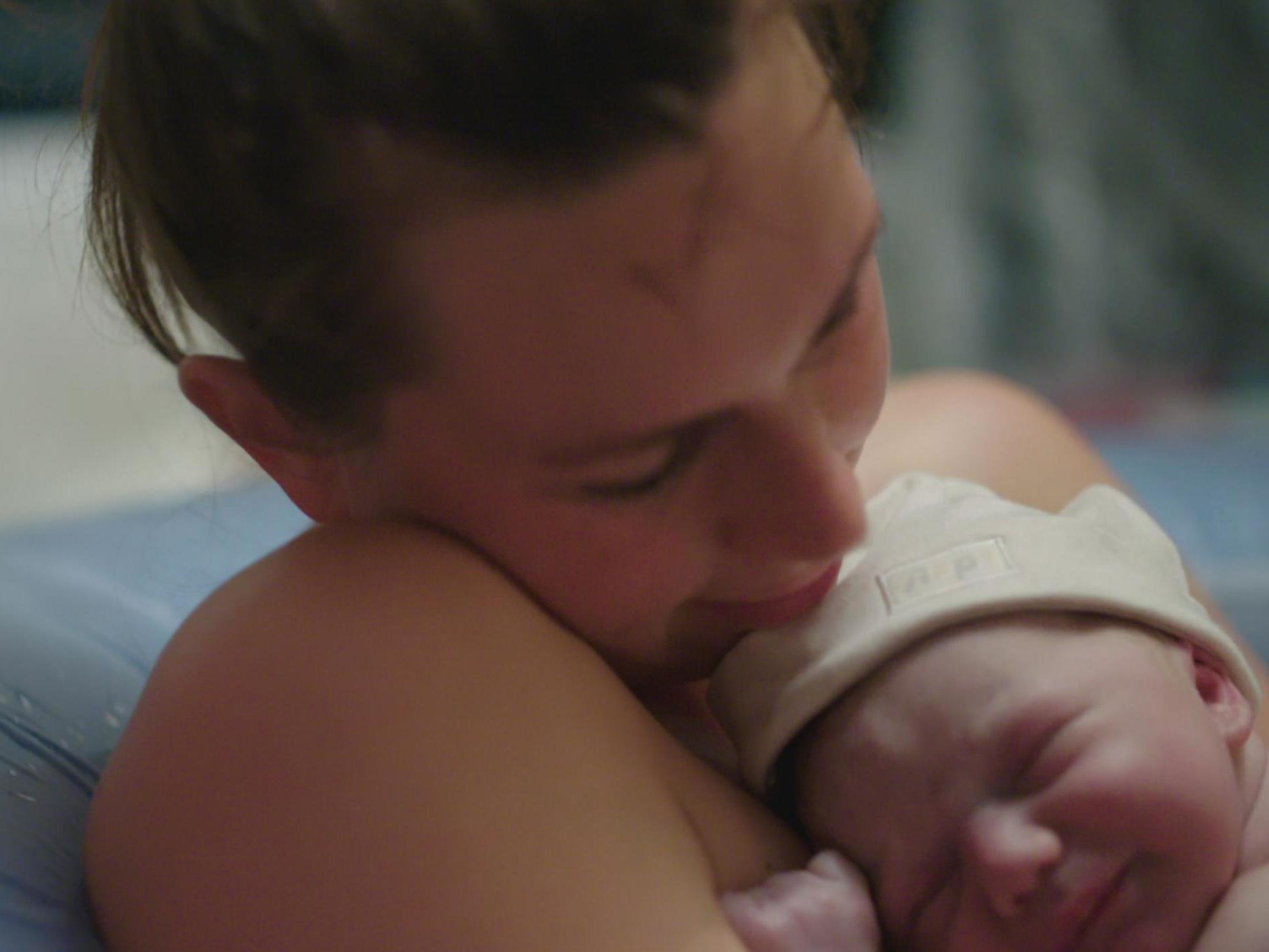At last, BBC One’s Life and Birth shows what having a baby is really like
My first experience of childbirth was much more frightening and shocking than I’d expected, writes our arts columnist Lucy Jones, because our culture has given an unrealistic view of it


A year ago, I gave birth to my son on our sofa. I was supported by my husband, two midwives, a birthing pool and “Les Fleurs” by Minnie Ripperton on repeat. It was horrific and it was the purest ecstasy. It was frightening and it was empowering. Over 12 hours, I stumbled into new rooms of pain that were beyond my imagination and I felt sweet elation. I stepped briefly through the life-or-death portal and found a new respect for my body. I felt brutalised and in control.
Despite a couple of hairy moments, it was a much more positive experience than my first birth because I knew more about what birth was like, could feel like. I recovered psychologically relatively quickly. After the first one, honestly, I was furious. It was much more frightening, shocking and obliterating than I’d realised. Why did no one tell me labour with regular contractions could last three days? How did I not know it could be so psychological? Of course, you might think, how could anything prepare someone to expel another body out of their own body? But I’m sure part of my hindering naivety was a result of the way our culture portrays pregnancy and childbirth.
Thankfully, the BBC One series Life and Birth is presenting a much more realistic portrayal of this ordinary facet of life for many people. Airing on Tuesday nights, it tells the stories of women and their families expecting babies at a hospital in Birmingham, and makes clear “what it really takes to deliver a baby”. Quite a lot, it turns out!
Usually childbirth on screen is either: woman’s waters break and baby pops out, or, short graphic scenes of screaming and writhing about in pain. It’s usually very one-note. Midwives suggest that the latter can exacerbate fear and tension in first-time mothers, which could increase the pain in childbirth. For some women, me included, a culture where birth in all its iterations was normalised would make it less frightening.
For the hallmark of birth isn’t the pain (which is subjective), it is that it is very different for different women. Life and Birth succeeds in showing this, filming personal situations with various nuances and complications as well as low-risk, “normal” births. We meet women who have experienced recurrent miscarriages, those with babies in intensive care, unpredictable births, undramatic births. Fixed-rig cameras and close-up filming techniques bring a rare intimacy and panoramic perspective to portray the often fleeting and quiet but profound moments that make the journey of birth. Crucially, it suggests how intensely emotional pregnancy and birth is, involving the mind as well as the body.
The demystification of birth is sorely needed in our culture. I’m glad that we seem to be moving away from the shrouding of the literal facts of life. “A lot of people try to make out that pregnancy is full of rainbows and magic but it’s really not,” as one woman says. This honest telling of how it is still seems like it should be whispered. Can’t an experience be both good and bad? Certainly, my experience of pregnancy, birth and motherhood is that it is both very difficult and completely wonderful, often in the same hour.
After my son was born, while waiting for the placenta to leave my body, and the shakes and shock to subside, I turned to my midwife. “How do you do such a scary job, and stay calm, when the outcome could be horrendous?” I garbled at her. (I had had some touch-and-go moments.) “I trust women’s bodies,” she said.
I decided to try a home birth for my second child because my first labour was so long. Maybe being at home would quieten my over-analytical mind and speed things up. I didn’t anticipate that the midwives I saw would communicate to me something radical: this simple trust in women’s bodies. That isn’t to say things always go to plan, and Life and Birth makes the need for doctors and medicine in some circumstances very clear, but I think the reason my second was easier was partly because I was empowered not to listen to culturally influenced beliefs: that my body is not enough, somehow repulsive and shameful, and in need of change, that the first thing I need to do after the birth is get my “pre-baby body back”. It was a different ideology to what I’d swallowed before.
While witnessing the cutting-edge fetal medicine and the skills and compassion of doctors and midwives in Life and Birth is extraordinary, depictions of childbirth in culture have been criticised for showing an overwhelmingly medicalised picture of birth over the past half century. Times have certainly changed: both my grandmothers had babies at home, while my plans for a home birth raised eyebrows. Perhaps the next step for film-makers working in this area could be a series on home birth teams to cover the diversity of different ways of giving birth. Or the psychological element of childbirth, which is so often overlooked.
‘Life and Birth’ airs on Thursday nights on BBC One
Join our commenting forum
Join thought-provoking conversations, follow other Independent readers and see their replies
Comments
Bookmark popover
Removed from bookmarks